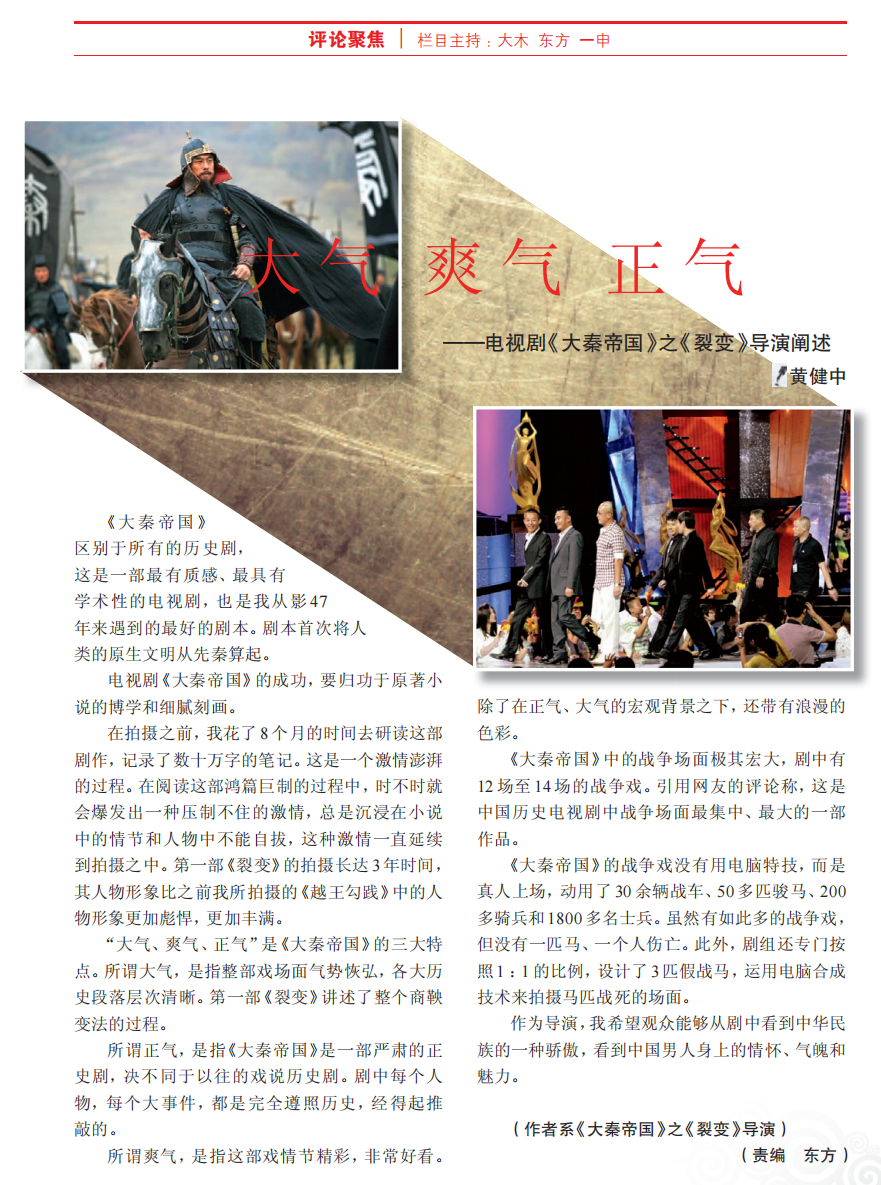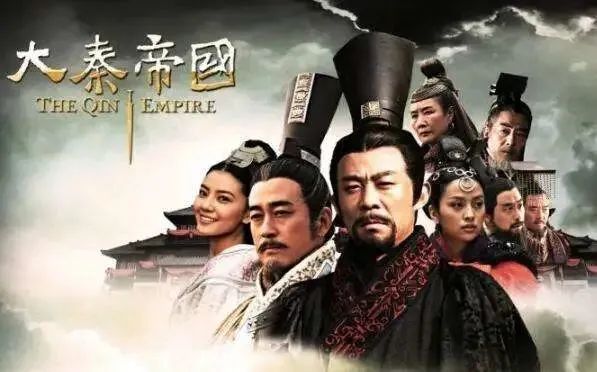
"The Great Qin Empire: The Fracture" is the first installment of the "Great Qin Empire" television series, directed by Huang Jianzhong and Yan Yi, with a screenplay by Sun Haohui and starring Hou Yong, Wang Zhifei, and others. This historical drama is adapted from Sun Haohui's novel of the same name, narrating the story of the legalist thinker Shang Yang, who, facing the imminent downfall of the Qin state, collaborates with Duke Xiao of Qin to implement reforms and enforce the rule of law, ultimately leading Qin to prosperity. The series received the second prize for long-form drama at the 28th China TV "Feitian Award."
The show began airing on the "Revisiting Classics" channel starting August 20. Let us follow the perspective of the show’s director and experience the passionate creative process behind "The Great Qin Empire: The Fracture," and appreciate its "grandeur, vibrancy, and righteousness."

The script for "The Great Qin Empire" uniquely traces human civilization back to the pre-Qin period. Distinct from previous historical dramas, it is a work of high quality and scholarly significance—one of the best scripts I've encountered in my 47 years in the film industry.
The success of "The Great Qin Empire" can be attributed to the profound knowledge and intricate characterization found in the original novel. Before filming, I spent eight months studying this work, taking hundreds of thousands of words in notes—this was an exhilarating creative process. While reading this monumental work, I frequently felt an uncontrollable surge of passion, becoming completely absorbed in the plot and characters. This passion continued throughout the filming process. The production of the first part, "The Fracture," took three years, and the character portrayals are more robust and rich than those in my previous work, "King Goujian of Yue."
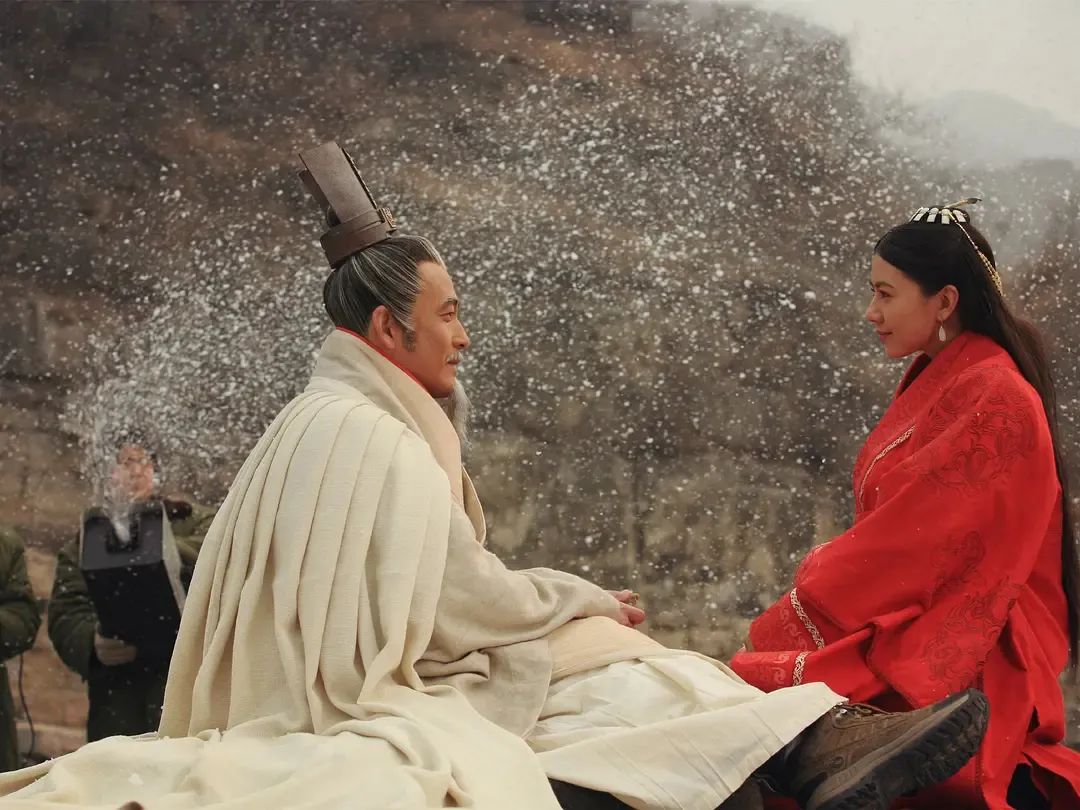
The three defining features of "The Great Qin Empire" are "grandeur, vibrancy, and righteousness."
Grandeur refers to the vast and imposing scenes throughout the drama, with distinct historical segments presented clearly. The first part, "The Fracture," details the entire process of Shang Yang's reforms.
Righteousness signifies that "The Great Qin Empire" is a serious historical drama, markedly different from previous dramatized historical accounts. Every character and major event in the series is fully aligned with historical facts and withstands scrutiny.
Vibrancy implies that the storyline is compelling and highly enjoyable. Amidst the backdrop of righteousness and grandeur, the series also carries elements of romance.
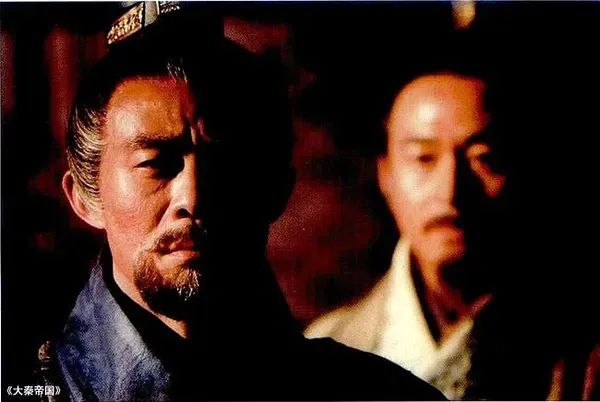
The battle scenes in "The Great Qin Empire" are extraordinarily grand, featuring 12 to 14 war sequences without the use of computer-generated effects. Instead, it utilized real actors, involving over 30 war chariots, more than 50 fine horses, over 200 cavalry, and more than 1800 soldiers. Despite the scale of the battle scenes, we managed to avoid any horse casualties. The crew specially designed three fake warhorses at a 1:1 scale and used computer compositing techniques for scenes depicting horse deaths.
As the director, I hope the audience can see a sense of pride of the Chinese nation, reflecting the sentiments, spirit, and charm inherent in the Chinese people.
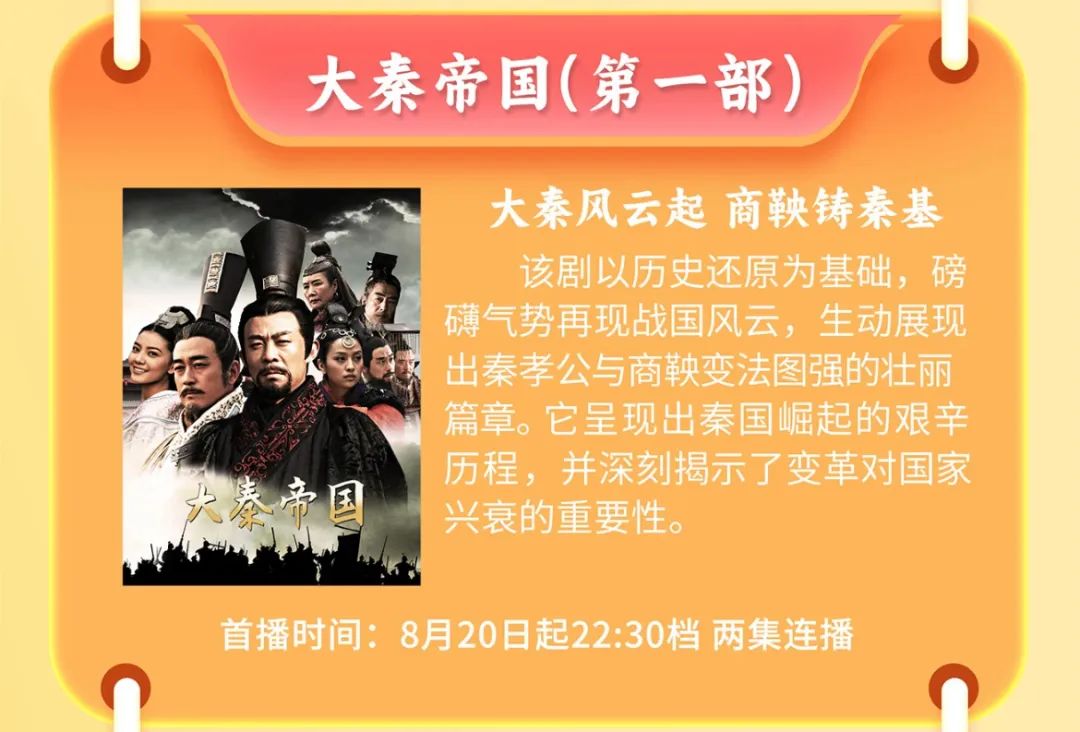
Appendix: "China Television" Issue No. 9, 2011 - "Grandeur, Vibrancy, Righteousness—"The Great Qin Empire: The Fracture" Director’s Statement" (Author: Huang Jianzhong)
